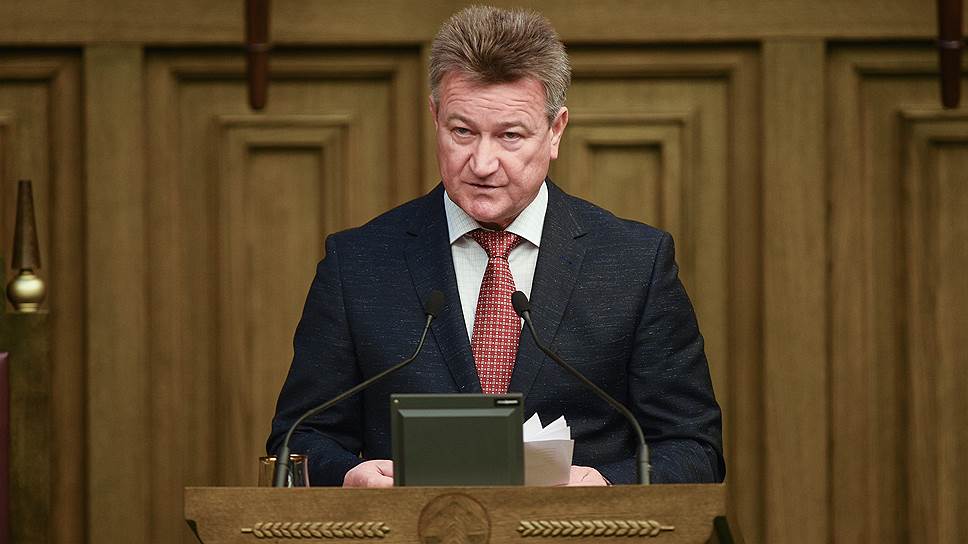The Supreme Court clarified the procedure for dealing with reposts and likes

Deputy Chairman of the Supreme Court of Russia Vladimir Davydov
Today it became known about the decision of the plenum of the Supreme Court of the Russian Federation, which clarified the procedure for dealing with extremist cases, including reposts and likes on social networks. Kommersant reports that judges are now invited to find out whether the defendant had a direct intent to incite hatred and hostility. In addition, judges should evaluate how the placement of the disputed information was socially dangerous.
According to the deputy chairman of the Supreme Court of the Russian Federation, the current court practice needs to be adjusted. The plenum adopted amendments to the resolution of the plenum of the Russian Armed Forces of June 28, 2011 “On judicial practice in criminal cases on extremist crimes”. In general, the essence of the amendments can be explained with one of Davydov’s speech phrases: “The fact of placing extremist information, a repost or, moreover, some likes cannot become a basis for initiating a criminal case”.
The resolution also stated that the monitoring of law enforcement in likes and reposts has been conducted since 2016. In the indicated year some problems were revealed and corresponding corrections were made. Two years have passed, and now the deputy chairman believes that the time has come to return to this resolution.
According to the new rules, immediately after the initiation of a criminal case under Article 282 (incitement to hatred or hostility), the person involved may file a complaint. In this case, the judges are invited to carefully check the presence of not only the excuse, but also the grounds for a criminal case. This includes not only the fact of posting information, but also any other information that indicates the social danger of the act and its motive.
In addition, the plenum of the Supreme Court recalled that in order to qualify a crime under this article, it is necessary to establish that the citizen was aware of the focus of his act on violating the fundamentals of the constitutional system, and also had the goal of inciting hatred or enmity, and humiliating human dignity. In order for the judges to understand well what is required to pay attention when clarifying intent and purpose, the plenum of the Supreme Court helped to clarify this by listing the criteria.
In particular, the judges will have to consider the form and content of the posted information, the context, the author’s comments and other expression of the relationship, the fact of creation or repost. In addition, it is necessary to study the content of the entire user’s page on the Internet, information about the user's activities both before and after posting information, including attempts to expand the audience.
One of the priorities is to study the identity of the accused, including information about his commitment to radical ideology, participation in extremist communities, bringing to administrative or criminal liability for extremist activities. Moreover, the plenum of the Armed Forces highlighted the need to assess the nature and extent of public danger.
If, for example, the repost of extremist information was made by an Internet user who has few friends on the social network or no one responded to the posted message, then the judges may decide that this act is insignificant and does not represent a public danger. Unfortunately, there are no exact criteria regarding the number of friends of the accused in the social network or their reaction to the repost. “We tried to clarify universal criteria in order to distinguish crime from non-crime. But each case will have its own circumstances, ”said the representative of the Supreme Court.
As for the conclusions of the experts, they lose their power - the plenum decided that the expert opinion could not have a predetermined force, and also did not have an advantage over other evidence.
The ruling of the plenum will allow those already convicted of repost and likes to apply for a review of cases. True, this can be done only if it can be established that "an established judicial decision does not meet the criteria."
According to the Supreme Court of the Russian Federation, last year, 783 people were convicted of extremist crimes. Of these, about 580 - under Art. 282, the majority - for the publication in the network. The three defendants were acquitted, 86 cases were dismissed, and medical measures were taken against 13 citizens. Since 2011, the number of convicts in Russia under the so-called “extremist” articles of the Criminal Code has increased fourfold. Other charges include incitement to violence, incitement of hostility and enmity, organization of an extremist community.
As for the experts, in their opinion, there are no objective reasons for increasing the indicators. The Interior Ministry acknowledges the existence of erroneous court decisions on “extremist” articles, but I declare that those who harm and sway the situation in the country are mainly prosecuted.
